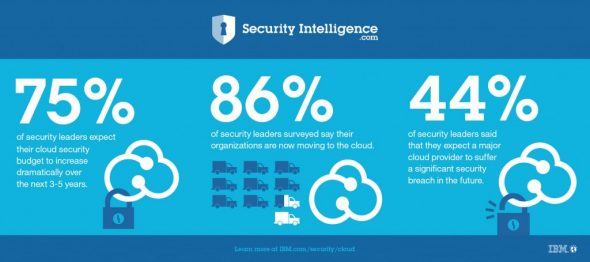Sign up to our Newsletter
As enterprises move their applications and data to the cloud, they’re faced with new challenges, and the most common one is how to keep the cloud environment secure.
How One AI-Driven Media Platform Cut EBS Costs for AWS ASGs by 48%

The cloud is not inherently insecure, as some people may suggest. Still, cloud environments offer some unique security challenges that need to be addressed properly. This is especially true for public cloud deployments which rely on cloud vendors to deploy security measures.
While such measures are usually adequate, vendors can’t secure every possible vector against attacks on their own.
And with the human factor being the evergreen problem in cybersecurity, it’s important to discuss how enterprises can tackle the challenges of cloud security.
Many security professionals are highly skeptical about the securability of cloud-based services and infrastructure. In this post, we will discuss some best practices and guidelines that can be used to keep your cloud environment secure.
Cloud security challenges and threats
The issues regarding cloud security are somewhat complex, but they fall into two broad categories:
- Security issues faced by cloud providers (organizations providing software-, platform-, or infrastructure-as-a-service via the cloud)
- Security issues faced by their customers (companies or organizations who host applications or store data on the cloud)
There are concerns that cloud computing is inherently less secure than traditional approaches. The paranoia is due largely to the fact that the approach itself feels insecure, with your data stored on servers and systems you don’t own or control. However, cloud computing security offers a range of security options to make sure your data is encrypted and safely stored. The security your cloud vendor provides will vary depending on exactly which type of cloud service you use.
If you’re using an infrastructure-as-a-service (IaaS) like AWS EC2 or Azure Virtual Machines, your cloud vendor is only responsible for the underlying infrastructure. The OS, middleware and other runtimes fall on the client.
For PaaS platforms, a client builds their own application; however, tasks such as data storage and management are abstracted away.
With software as a service (SaaS), cloud vendors host, manage and offer infrastructure as well as applications that companies can purchase and use. With all these cloud computing categories, however, the client is responsible for the data that is involved.
Speaking generally, the major security challenges that companies using cloud infrastructure have to prepare for are:
- Data encryption
- Access management
- DDoS attacks
- Data visibility
Best ways to keep your cloud environment secure
Here is a list of crucial areas to focus on when you consider your cloud environment security.
Encrypt your data
Data encryption in the cloud is the process of transforming or encoding data before it’s moved to cloud storage. Typically cloud service providers offer encryption services — ranging from an encrypted connection to limited encryption of sensitive data — and provide encryption keys to decrypt the data as needed.
Data encryption doesn’t necessarily keep a cloud environment secure, but it does mean the impact of data breaches is limited. However, according to some cloud security experts, up to 82% of relational databases and 40% of storage volumes are unencrypted, with a high percentage of each cloud service being publicly accessible due to other poor security practices.
Encrypting everything has its problems since encrypted databases experience performance issues, and there’s also the risk encryption keys to storage volumes could be targeted by hackers – which would undermine the purpose of encryption. Nonetheless, if you want to keep your cloud environment secure, encrypting sensitive data and following security best practices is a must.
Manage your access
Although it may be impractical to encrypt every piece of data, there’s no excuse for failing to apply “least privilege necessary” access controls. Poor identity, credential, and access management has been responsible for several significant data breaches, and it’s important users are assigned privileges according to their role or function – and nothing more.
Since cloud enables acess to company’s data from anywhere, companies need to make sure that not everyone has access to that data. This is done through various policies and guardrails that ensure only legitimate users have access to vital information, and bad actors are left out.
Prepare for a possibility of DDoS attacks
Distributed denial-of-service attack (DDoS), like any denial-of-service attack (DoS), has as its final goal to stop the functioning of the targeted site so that no one can access it. The services of the targeted host connected to the internet are then stopped temporarily, or even indefinitely.
The usual targets for DoS or DDoS attacks typically include websites hosted on high-profile web servers (such as credit card payment gateways, banks, government bodies) and most commonly, the target machine is so overwhelmed with external communication requests that it can either respond too slow, or not at all, and is considered effectively – unavailable.
There are several approaches to mitigating DDoS attacks, but usually the best way is to use the services of a dedicated cybersecurity vendor.
Multi-factor authentication is a must
Strong and frequently rotated passwords aren’t enough to stop the most determined hackers. The speed at which passwords can be cracked using brute force increases year on year, and when hackers are using algorithms and botnets to further accelerate the pace, it may not matter how many letters, numbers, and unique characters the password includes.
Multi-factor authentication is a nuisance, but it’s an essential security mechanism for any user with privileged account access. Ideally users should use a security key to generate MFA PIN numbers rather than receive SMS messages, as – in these days of BYOD – the same device could be used to log into a privileged account and receive the PIN number.
Conclusion
There’s no one right way to secure your cloud environment – every cloud setup is different, since every enterprise is different in size, business goals and cloud requirements. In this article we have discussed some of the best ways to keep your cloud environment secure, but your organization may run into unique cloud security challenges.
If you have any questions about how we can help you secure and optimize your cloud, contact us today to help you out with your performance and security needs.








